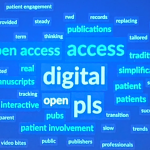Featuring highlights from the ISMPP U webinar on plain-language summaries, lessons learned from the YODA Project and the benefits of Wiley’s ‘Under Review’ service.
Navigating the path to plain-language summaries via ISMPP U
Publishing open access provides the general public with universal access to medical research; however, is this research truly accessible if it cannot be understood by everyone?
‘Plain-language’, ‘lay’ and ‘non-technical summary’ are just some of the terms used to refer to a synopsis of research evidence that is written in everyday language and is understandable to non-specialist audiences. Plain-language summaries (PLSs) not only provide patients with access to the latest scientific information but can also be used by policy makers who are not field experts and individuals who have English as a second language.
Not wanting to risk appearing to be involved in promotional activity, many pharma companies remain cautious about disseminating the results of clinical trials to patients. To address compliance concerns, this week, an ISMPP webinar recommended that those wishing to write a PLS turn to their legal teams to discuss the best approach on this matter. In addition to providing guidance on compliance, more work needs to be done to standardize PLS terminology and the process of generating PLSs. A best practice toolkit is already available from ENVISION, and Taylor & Francis are currently working on a set of guidelines to standardize the development of PLSs.
Learn lessons from YODA, we have via STAT
The attitude of the scientific community to data sharing has come a long way since the launch of the Yale University Open Data Access (YODA) Project in 2011. The growing need for clinical trial data sharing is also reflected in the 2018 International Committee of Medical Journal Editors (ICMJE) policy, which requires that all clinical trial reports submitted to ICMJE journals include a data-sharing statement. By operating a controlled-access model, YODA provides protection against patient reidentification and prevents the redistribution of data. Since YODA formed a partnership with Johnson & Johnson in 2014, 75% of trials listed on YODA have been used by external investigators. Data from clinical trials available via the YODA Project have now been used to develop research articles in a wide range of disciplines – from type 2 diabetes to schizophrenia.
Despite the fact that the practice of sharing clinical trial data with the public has obvious benefits, many researchers question the motives of those requesting data and are concerned about the potential risk of patient reidentification. However, the biggest challenge to clinical trial data sharing is the current lack of data availability awareness.
The article concludes that, even with the time and financial costs in setting up the YODA Project, data sharing is the best way to honour the participation of patients in clinical research.
New ‘Under Review’ service for transparent and open publishing via Wiley
Publishing in peer-reviewed journals is a time-consuming process; with this in mind, it is no wonder that open research platforms such as Authorea are becoming increasingly popular as a means of publishing quickly and transparently.
A new initiative from Wiley combines the open research platform capabilities of Authorea with those of a preprint server. The opt-in ‘Under Review’ service automatically posts manuscripts submitted to Wiley journals as preprints in HTML format and assigns them digital object identifiers to allow them to be cited immediately. All comments during the review process are posted online alongside a live peer-review timeline, offering researchers the opportunity to check which stage of the publishing process the article is at, at any given moment. Wiley and Authorea hope that embedding preprints in the reviewing process will help to reassure authors that publishing their papers as preprints will not prevent their research from being published in a peer-reviewed journal.






